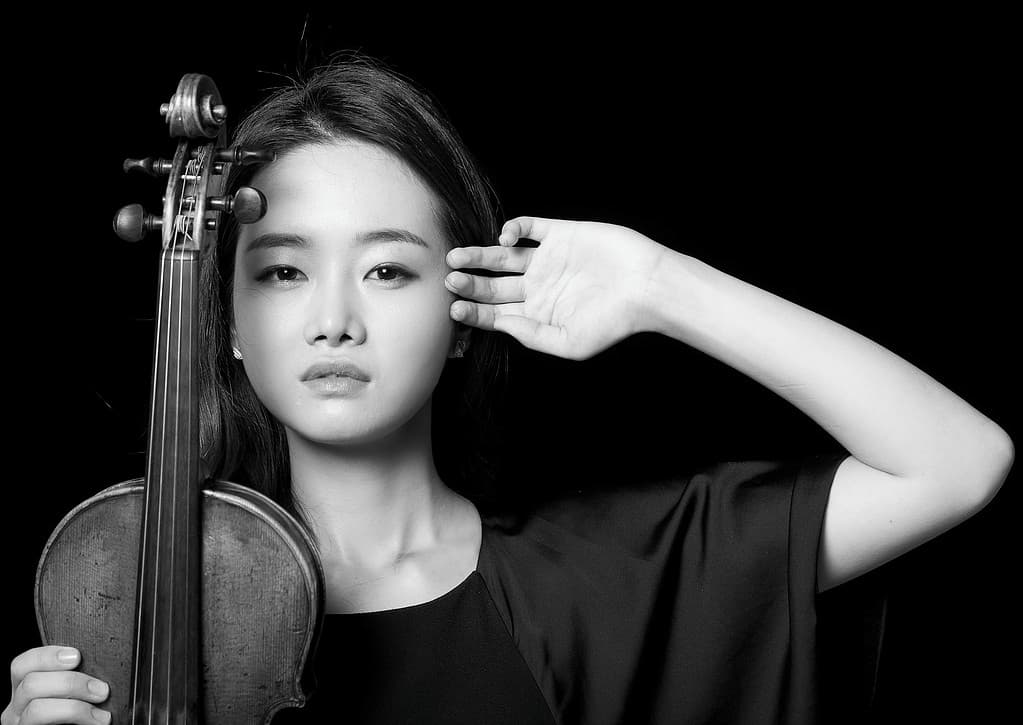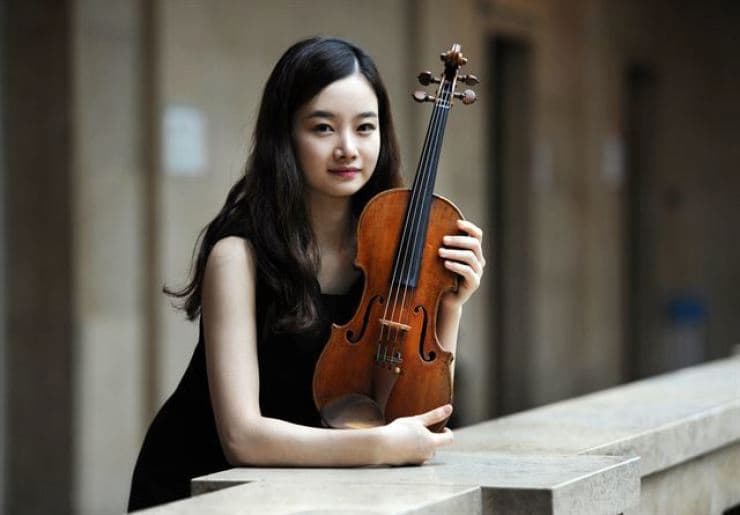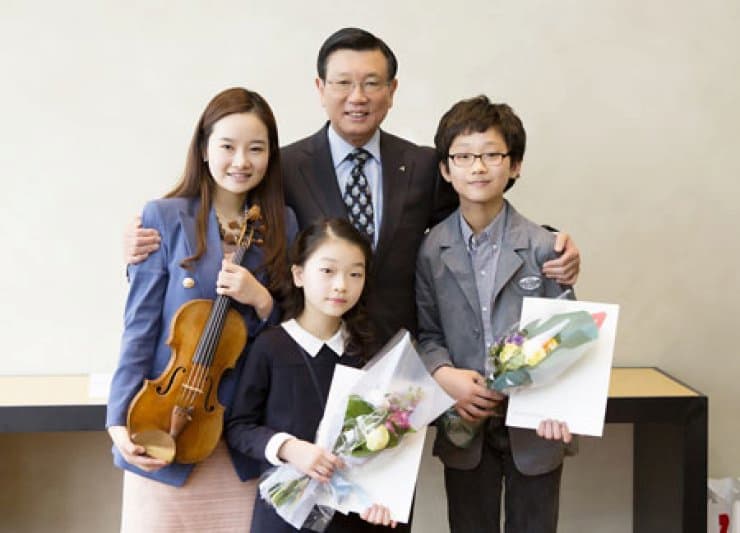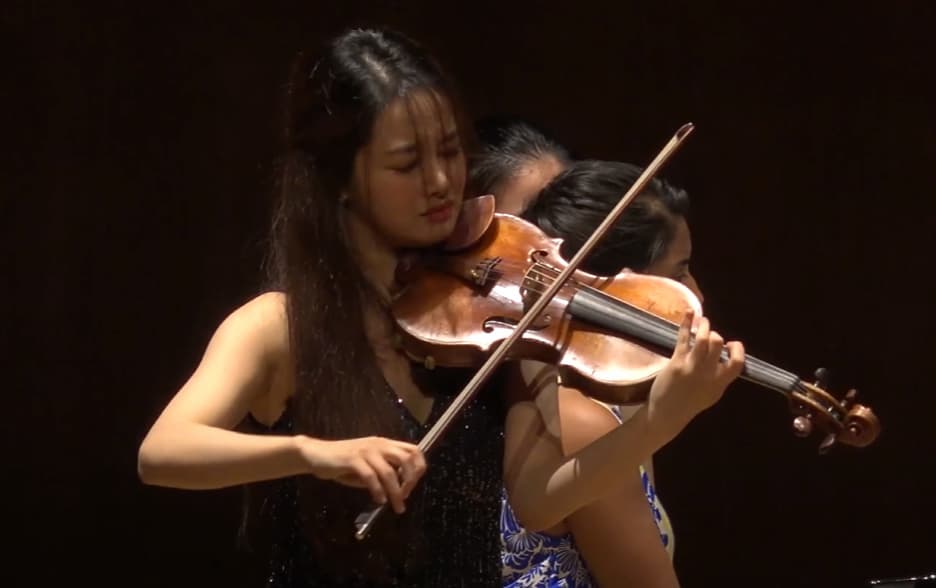In Korean, the name “Bomsori” basically means “the sound of spring,” but professionally, the violinist Bomsori Kim has earned the nickname “Competition Huntress.” Indeed, she has won a long list of competitions, including the 62nd ARD International Music Competition, the Tchaikovsky International Competition, and the Queen Elisabeth Competition, to name only a selected few.

Bomsori Kim
Initially, she felt rather awkward about the nickname, but is quick to point out that “it reminds her of the days when I fervently pursued my dreams of standing on the world stage, evoking memories of the intense but naive passion I had back then.”
Bomsori Kim Performs Wieniawski’s Polonaise de Concert, Op. 4
Studying Under Kyung-Wha Chung
Bomsori Kim, born on 13 December 1989 in Daegu, South Korea, grew up in a highly musical environment. Her mother was a piano teacher, and her father played the classical guitar as a hobby. As she related in an interview, “they loved music so much so they would turn on the symphonies by Beethoven or Mozart to wake me up. So I used to hate them because I wanted to sleep longer!”
She took piano lessons at the age of four and started playing the violin a year later. Soon, she joined her parents and siblings in the family ensemble. Singing and ballet were among her childhood passions, but things changed when she attended a concert by legendary Korean violinist Kyung-Wha Chung at the age of 7. She immediately fell in love with the sound of the violin, something she described as “so direct and so emotional.”
Bomsori/Holeksa Perform Tchaikovsky’s Meditation
First Lessons

Mesmerized by the sound, her parents actually thought that Bomsori had fallen ill, when in fact, she was simply overwhelmed by the sound. From that moment on, she desperately wanted to realise her dream of becoming a violinist. However, what had looked so effortlessly smooth on stage was, in reality, not all that easy. Bomsori vividly remembers “the shock I had with the strange noise I made. It wasn’t what I wanted, and I quickly realized that the violin was not an easy instrument to play.”
Bomsori made her debut at the age of 14 as a gifted young artist at a “Kumho Prodigy” concert in 2004, through which so many other world-class Korean musicians made their debut. She began to keep a detailed music diary in middle school and also developed a passion for “Go” or “Baduk” in Korean.
Claude Debussy: Violin Sonata in G Minor (Bomsori, violin; Rafal Blechacz, piano)
First Competition

Kumho Asiana Cultural Foundation Chairman Park Sam-koo with Bomsori Kim and two other young talented musicians © Kumho Asiana Group
For Bomsori, this ancient strategy board game and music have a number of things in common. “Through a game of Go, you can catch a glimpse of the player’s style, personality, and values; the same applies to music. When we listen to a composer’s work, we get a glimpse into their personal life; they cannot hide or disguise themselves within the music.
In both cases, the performance itself becomes a form of communication and dialogue.”
After middle school and high school, Bomsori’s family moved to Seoul so that she could study at Seoul National University with violinist Young Uck Kim. She soon entered her first international competition in Sendai, Japan, in 2010. It was the first time that she stood on a stage that wasn’t in Korea, and she confessed of “being afraid of having her playing evaluated.” However, she was also “excited because it was my first time performing with an international orchestra.”
Bomsori/Peterson Perform Mozart’s Violin Sonata in E minor, K. 304
The Competition Circuit

For Bomsori, competitions have their advantages and disadvantages, “and for musicians, they are very important occasions.” She encourages aspiring musicians to take up the challenge of a competition in order to “digest a wide range of pieces in a short period of time and to gain insights into performing.”
Having been told that the process is more important than the result, Bomsori confesses that she never really knew what the process was supposed to be. Although the idea of competitions might be far removed from art itself, she feels that “I wouldn’t be the same professional musician I am today had it not been for the valuable stage experience I gained from competing. Above all, I have met a lot of wonderful people.
For more of the best in classical music, sign up for our E-Newsletter
